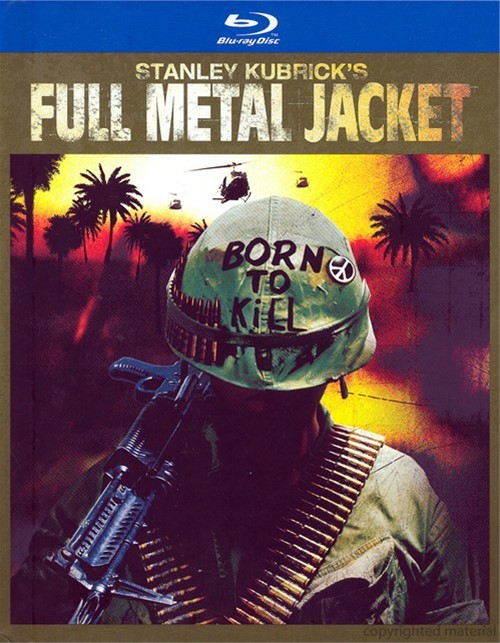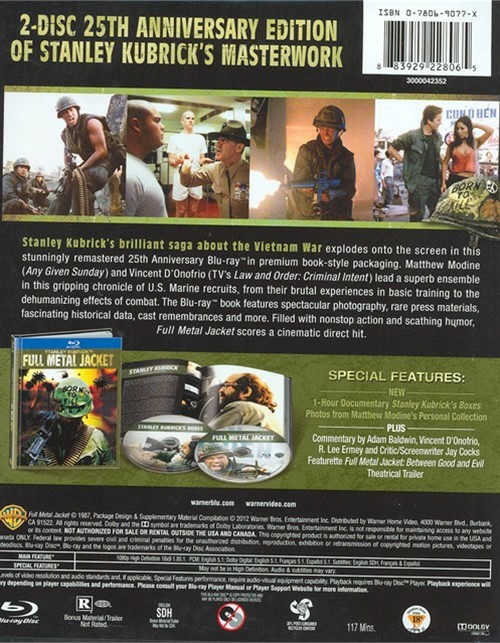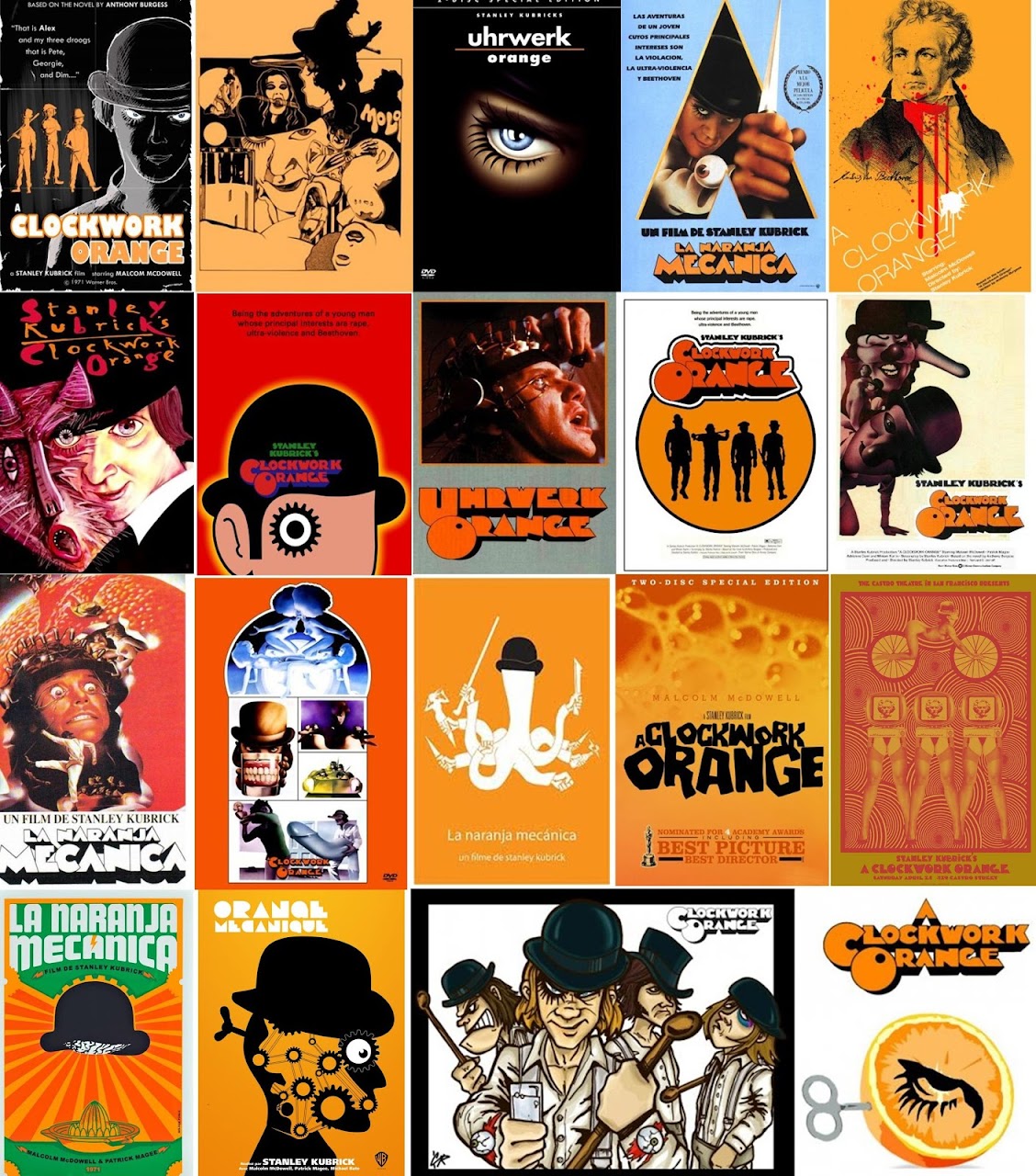Jon Ronson planeaba realizar una entrevista al director Stanley Kubrick, algo que este raramente hacía. Repentinamente, Kubrick murió mientras completaba la producción de la que sería su película póstuma, Eyes Wide Shut. Para su sorpresa, Ronson fue invitado a la casa de Kubrick por su viuda Christiane. Cuando acudió a la cita prevista, en una propiedad rural con varias edificaciones, descubrió en una de ellas un inmenso archivo con unas mil cajas. Estas contenían cartas, documentos o periódicos en las que Kubrick se inspiraba para sus films. Del análisis de este extenso material quedaba claro que podría haber un punto de partida para el rodaje de un documental.
Los autores del reportaje examinaron el material existente en unas cajas que Kubrick conservaba en su propiedad, y que la familia del realizador autorizó que fueran examinadas por los expertos. Entre estos materiales, se hallaban:
- Fotografías tomadas durante las pruebas para el rodaje de La naranja mecánica, en las que los actores que interpretaban a la pandilla dirigida por Malcolm McDowell se probaban diversos modelos de sombrero. Kubrick buscaba un sombrero siniestro.
- Cartas enviadas por aficionados al cine que escribían a Kubrick opinando sobre sus películas. Kubrick clasificaba con minuciosidad estas misivas, por país, ciudad, etc., realizando anotaciones sobre lo potencialmente peligrosas que pudieran ser las intenciones del remitente.


Features: 1 Hour Documentary Stanley Kubrick's Boxes (2008)
Los autores del documental localizaron a uno de aquellos que escribieron a Kubrick, un antiguo guionista televisivo ya retirado del medio, y le entrevistaron. Este apenas recordaba ya aquella anécdota, pero en aquel entonces admiraba tanto a Kubrick que había llegado a sentirse molesto con él por no poseer su talento. Otros entrevistados fueron la viuda de Kubrick, Christiane Kubrick, una de las hijas de ambos, Anya Kubrick (la otra de sus hijas se encontraba en esos momentos en Los Ángeles, como se comenta en un momento dado, por lo que no pudo participar en el documental), o antiguos colaboradores del director en películas como Eyes Wide Shut, como es el caso de Jan Harlan.
During the recent wave of Stanley Kubrick Blu-Ray releases, I stumbled upon an article on the Digital Bits website that mentioned a rarely seen documentary called Stanley Kubrick's Boxes and how they hoped it would make its way on to DVD at some point. I was curious once I read that it was about sorting through the over 1,000 boxes Kubrick kept at his estate, and so I went out of my way to track it down. At 48 minutes long, this is the shortest effort I've ever covered on Nether Regions, but trust me it's worth it.
The documentary came about in 1998 when Jon Ronson received a mysterious call from a man named Tony to see a copy of a Holocaust documentary Ronson had made (Hotel Auschwitz). Only later did he discover that it was Stanley Kubrick who was interested. The initial idea was to shoot a rare interview with the iconic filmmaker, but after a year of planning that undertaking, Kubrick passed away in 1999 right after completing work on Eyes Wide Shut. Ronson did not expect then to get an invitation to the Kubrick home in England after the fact, but he did, and upon arrival he was given special permission to examine the contents of over 1,000 boxes the director had stored all over his property, all containing papers, photos, and more scattered throughout his film career.
Tony is actually Kubrick's assistant Tony Frewin, who greets Ronson and shows him all the areas where boxes were housed. It is a stunning visual to say the least. There are numerous revelations on this documentary, but one right off the bat is touched on in an interview with Kubrick's photographer and nephew, Manuel Harlan, who admits to taking 30 or 40 THOUSAND photos for Stanley. Among them, are shots of various estate entrance gates. These were taken for exactly one scene in Eyes Wide Shut, but Kubrick had his man snap as many stills of estate gates as he could, and it seems like hundreds, just for one scene. Later, we see pictures of the droogies in A Clockwork Orange wearing various hats, as many as it would take to find that perfect one. Ronson asks: "How did he know when he had found the right hat?" He also asked Harlan if Stanley looked at each photograph, and his reply was "Yes, happily."

Ronson posits the theory that it was Kubrick's attention to detail that made him one of the greatest filmmakers of all-time. I believe this is indeed a large piece of the puzzle, but not the only piece. Kubrick was willing and able to go the extra mile and spend as much time as necessary to achieve the proper effect, but his true genius rested with the fact that he delivered an ageless achievement. That is what separates him from so many others. Frewin describes him as not "insane", which was the rumor swirling during the 70's and 80's when he handed in very few films, but as one of the smartest men he's ever known. His attention to detail reached into various parts of the filmmaking process, and that is why I think Ronson views it as the reason for his success. Of course his vast knowledge of the entire process counts as well, and as his career evolved and he began be involved in every area of his films, that is why they tended to take so long to wrap and eventually hit theaters.
But when I say attention to detail, I genuinely mean that. For example, he sent frequent daily memos to Tony Frewin about random items of concern on his agenda. One he recites aloud was Kubrick requesting the barometric pressure between specific hours on any given day in a certain area he planned to film in. He also meticulously kept tabs on all the advertisements in all the newspapers for his movies. If they purchased a 450 millimeter ad, and it was 438, a phone call was made. This was not just to be a stickler, but so he could learn more about the process of placing ads in newspapers. His widow Christiane and his daughter Anya say it was all about learning something new. He adored the new education aspect of filmmaking, diving fully into a subject he never explored.
Kubrick kept every single fan letter he received, filed them in the most organized manner I have ever seen and marked them according to their tone. Ronson even finds one man who penned a "crank" letter as Kubrick referred to them, which was basically someone bashing the director. Kubrick also inconspicuously hired assistants all over the globe, to read various scripts and novels and send their opinions to his assistant (Tony), who created a faux company (Empyrean Films) so the people never knew who they were employed by. Tony is startled to see that The Killing Fields was one title he himself passed on. Christane discusses the failed Wartime Lies project, which was about the Holocaust, and never saw the light of day, primarily because Spielberg finished Schindler's List around the same time.
This is (to date) the final offering Ronson directed. He also wrote the book that the film The Men Who Stare at Goats is based on. He's a fantastic documentarian, reminiscent of Werner Herzog in that he presents his own opinion, but never intends for that to be intrusive on the central topic. He remains as impartial as possible, while still crafting a fascinating glimpse into the private life of a legend. This was not intended as a biography. Look at any of the extras on your ordinary Kubrick DVDs for those featurettes. Ronson's goal was to examine how the boxes connected to Stanley the filmmaker, to understand him better. For a documentary on cardboard boxes, Ronson does afford them majesty and mystery, indicating to the viewer that this vast collection of research and memorabilia has tremendous significance.
Kubrick is revealed to be shy above all else, and definitely not a recluse. People came to him, so he didn't have to travel all that much. He could spend time worrying about his cats, whom he was obsessed with, to the point that his assistants had a collar designed especially for them. He also commissioned one company to design a box with precise measurements to store all of his stuff. This is an superb documentary, one that should be attached to a Kubrick release in the future. It is enlightening and entertaining, even for those who are not die-hard Kubrick fans. I do wish it were longer, but not overstaying your welcome is ok. If you seek this out for no other segment I have listed, do so for the behind-the-scenes footage of Kubrick directing the "This is my rifle, this is my gun" sequence from Full Metal Jacket. Priceless.
ENLACES/FUENTES:
http://es.wikipedia.org/wiki/Stanley_Kubrick%27s_Boxes
http://www.411mania.com/movies/columns/197292/Nether-Regions-08.10.11:-Stanley-Kubrick//s-Boxes.htm

